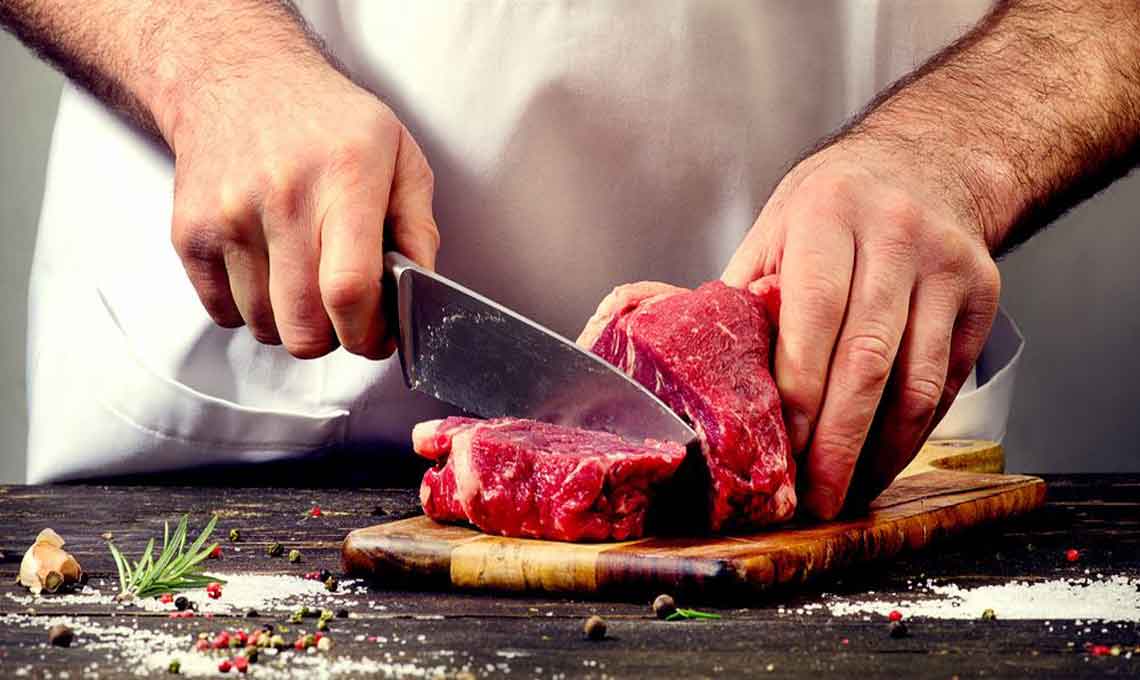Why Canadians are walking away from the meat counter

The cost of living has understandably been one of the current federal election’s top issues. Most major parties have included proposed measures to help Canadians, especially those with less means
However, recent data suggest consumers are taking matters into their own hands to save a few bucks.
Meat represents a big portion of anyone’s food budget, roughly 20 per cent on average. If saving money at the grocery store is a priority for someone, cutting meat is an easy target.
Recent retail sales data suggest that Canadian consumers are already hedging against food inflation at the grocery store. According to some sources, meat sales have dropped significantly this year, especially in the last 12 weeks. And barbecue season is normally the most lucrative period of the year for the meat trifecta of beef, chicken and pork.
“Canadians are reportedly more food literate than before the COVID-19 pandemic, and that may empower many to consider other protein ingredients.“
Across the nation, beef sales in volume at grocery stores have dropped by more than six per cent since May. Even in Alberta, cattle country, beef sales have dropped by more than six per cent.
It’s even worse for chicken and pork. Sales in volume for chicken dropped by more than 12 per cent and pork by 17 per cent. In Ontario alone, pork sales dropped 20 per cent this summer.
Even if consumers were going out more this summer compared to the spring, these meat consumption drops are quite significant – many Canadians are clearly spending less time at the meat counter.
Meanwhile, retail beef prices are up almost 10 per cent on average since January, according to Statistics Canada, and pork and chicken are also more expensive, despite sluggish sales.
That’s why the supply-and-demand theory many mention when prices go up rarely makes sense at the grocery store. It’s more complicated than that. For grocers, the art of fixing prices in food retail is a blend of protecting margins and setting prices based on what grocers believe the market can bear.
So despite lower retail sales, don’t expect prices to drop any time soon. Higher grain prices, lower inventories and supply chain disruptions are making meat an increasingly expensive choice.
Historically, beef and pork are highly price-elastic, while poultry is relatively inelastic. Consumers tend to react to higher beef and pork prices and tend to settle for chicken. Chicken is like the tide in meat counter economics. If chicken goes up in price, so will pork and beef because of their demand elasticity.
And since grocers know it’s much harder to increase prices when offering discounts for an extended period, playing with prices at the meat counter isn’t common.
This summer, all three components of the meat trifecta were severally affected by how consumers reacted to higher meat prices. In most stores, even if deals offering some products at 25 to 50 per cent off can be found, the perception that a trip to the meat counter will cost you dearly is ingrained in many consumers’ minds. Many have been spooked and that’s never good business, especially for meat.
In 2014, beef prices startled consumers with a 25 per cent hike in just one month. Many consumers boycotted the meat counter – for a while. Sales came back while prices barely dropped.
But 2014 was a different protein market. It was before the Beyond Meat craze. Most Canadians were heavily committed to animal proteins, mainly because they weren’t aware of other options.
Today, most Canadians remain committed to eating animal proteins, but they are game to venture beyond meat and settle for other more affordable protein sources.
The hard reality is that eating meat is a luxury in most countries and it’s slowly becoming one in Canada. That’s a harsh lesson in meat economics for us all.
An average family of four can spend $2,600 to $3,000 on meat products in a year. So reducing a meat budget can make a difference.
Sales of meat alternatives have been about four per cent higher this summer compared to the spring. Canadians won’t give up meat anytime soon but other options are now within their grasp.
Canadians are reportedly more food literate than before the COVID-19 pandemic. Most of us know more recipes and are willing to get more creative in the kitchen. And that may empower many to consider other protein ingredients.
If meat is pricing itself out of the market, so be it. Canadians can handle it, at least more so than they used to.
Dr. Sylvain Charlebois is senior director of the agri-food analytics lab and a professor in food distribution and policy at Dalhousie University.












